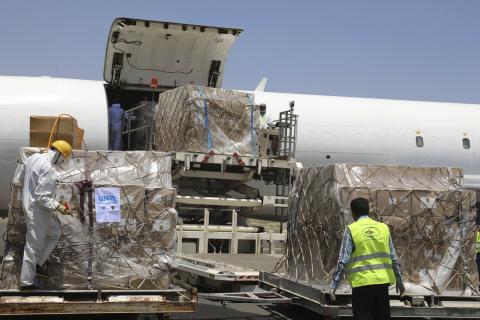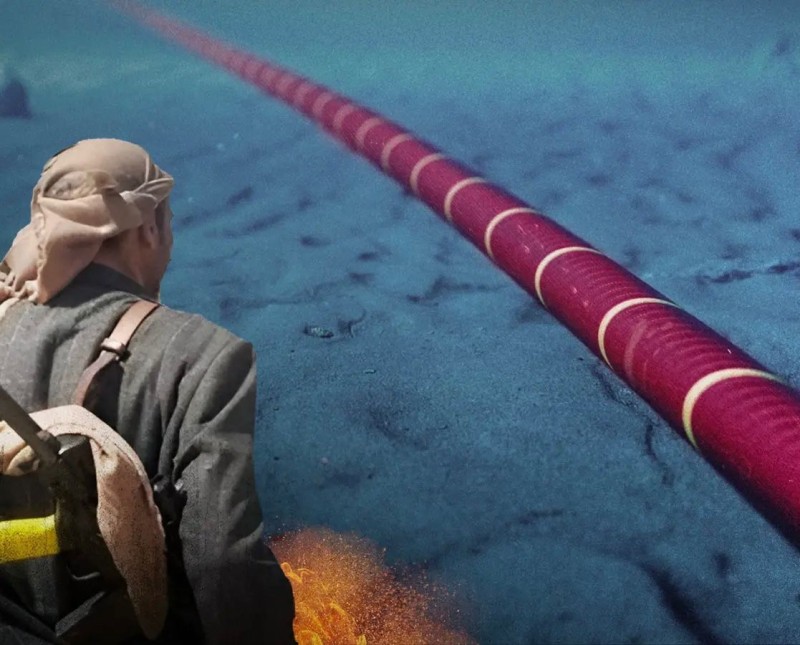Yemen: Women Revive Country's Oldest Factory to Sew Face Masks


More than a decade after it closed, 20 Yemeni women have revived the war-torn country's oldest factory to make face masks in anticipation of an outbreak of the new coronavirus.
The situation is especially fraught because Yemen's health system has all but collapsed following years of conflict.
In the factory in the capital Sanaa, rows of desks line a cavernous hall with women in black niqab and white gloves hunched over sewing machines meticulously assembling medical masks, AFP reported.
Yemen, ravaged by an ongoing war described by the United Nations as the world's worst humanitarian crisis, has not yet registered any COVID-19 cases.
It has not taken drastic measures to prevent the virus' spread, but is also less vulnerable to imported virus cases, with swathes of the country under siege and air links severely curtailed. Yemen has not taken drastic measures to prevent the virus' spread, but is also less vulnerable to imported virus cases, with swathes of the country under siege and air links severely curtailed.
"We have been working on the masks since Monday and, thank God, we started working on them before the disease reaches us as a precautionary measure, without the need to import from outside," mask maker Faten al-Masoudi told AFP.
"I am willing to work here for free for the health of our children, infants and women," added Masoudi who, like all the women, does not receive a regular salary but is paid per mask.
In another section, one women sanitized plastic bags as another filled them with masks.
"We have stood firm against war and we will stand firm against this disease," Abdulbasit al-Gharbani, the factory's sewing director, told AFP.
The storied Chinese-designed factory opened in 1967 producing cotton, which was a major contributor to Yemen's economy in the 1970s, making garments including army uniforms before shuttering in 2005.
Parts of the complex have been damaged in airstrikes while others have become dilapidated.
Abdullah Shaiban, the factory's chairman, hopes the crisis preparations will see the site achieve its "full potential".
"There is a great demand for this kind of mask, which people use to protect their health," he told AFP.
"We transformed a section of the sewing department that manufactures clothes into one that produces masks."
He was hopeful that with 80 machines, the plant could make 8,000 to 10,000 masks daily.
Another factory in Sanaa is now manufacturing hand sanitiser.
- 'Viruses don't respect borders' -
The World Health Organization confirmed Tuesday there were no registered cases in Yemen.
"The virus does not respect borders," said Yemen's WHO representative Altaf Musani.
"There is a shortfall in the number of tests... we're about to increase... testing capability."
Musani added the WHO had distributed protective kit, including masks and gloves, but not "nearly enough", and was working to get more.

Tehran — Iranian Foreign Ministry spokesman Ismail Baghaei has voiced concern over the latest developments unfolding in Yemen, particularly i…

A new media report has revealed that Google is embarking on a major subsea cable initiative, dubbed Blue Raman, in a strategic move to establish a…

Muscat – Thousands of Yemeni families are anxiously watching the ongoing prisoner exchange talks in Muscat, Oman, hoping for a breakthrough t…